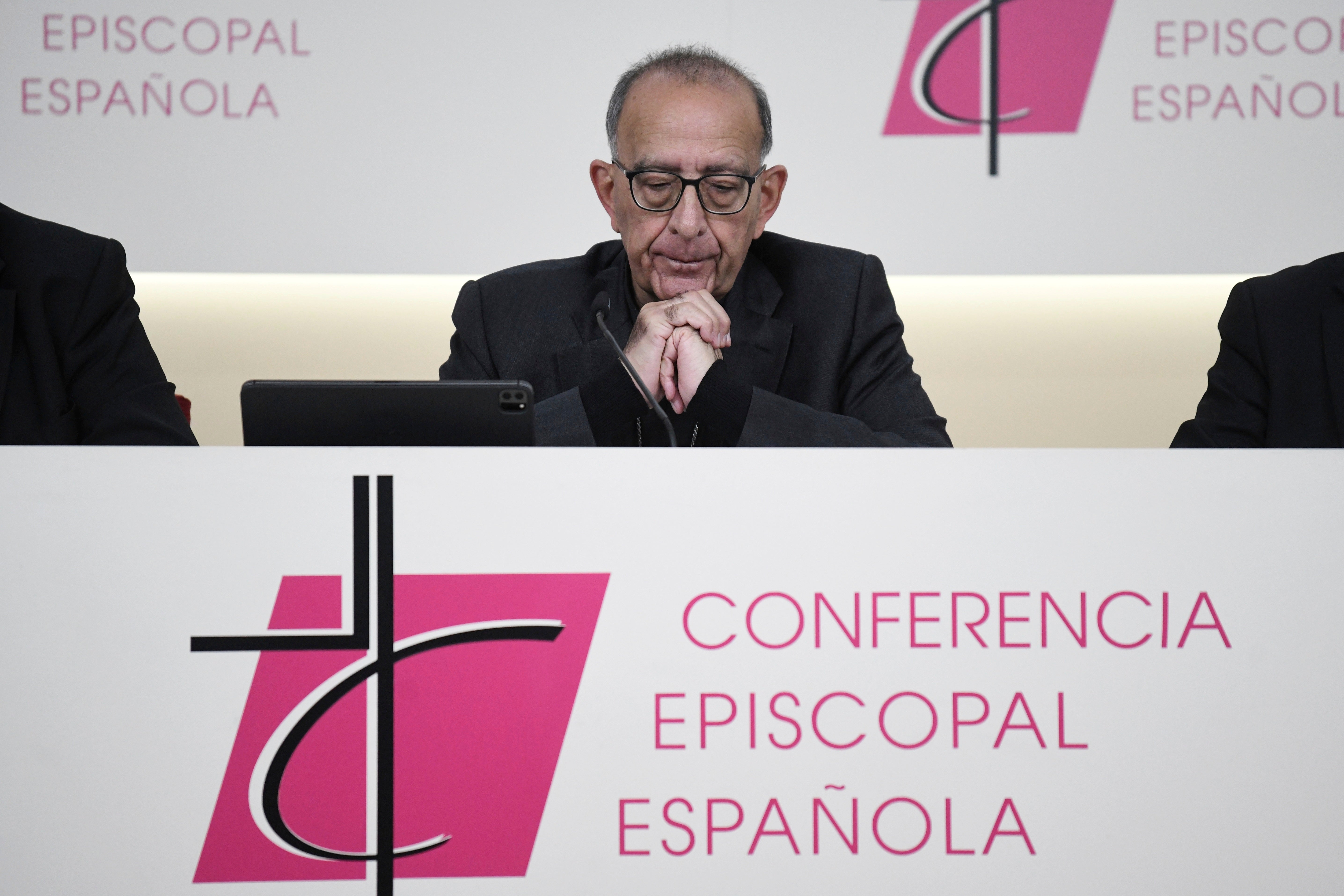Spain's bishops apologize for sex abuses but dispute the estimated number of victims in report
Spain's Catholic bishops have apologized again for sex abuses committed by members following a report by the national ombudsman that accused the church of widespread negligence

Your support helps us to tell the story
From reproductive rights to climate change to Big Tech, The Independent is on the ground when the story is developing. Whether it's investigating the financials of Elon Musk's pro-Trump PAC or producing our latest documentary, 'The A Word', which shines a light on the American women fighting for reproductive rights, we know how important it is to parse out the facts from the messaging.
At such a critical moment in US history, we need reporters on the ground. Your donation allows us to keep sending journalists to speak to both sides of the story.
The Independent is trusted by Americans across the entire political spectrum. And unlike many other quality news outlets, we choose not to lock Americans out of our reporting and analysis with paywalls. We believe quality journalism should be available to everyone, paid for by those who can afford it.
Your support makes all the difference.Spain’s Catholic bishops on Monday apologized again for sex abuses committed by church members following a report by Spain’s Ombudsman that accused the church of widespread negligence.
But the bishops dismissed as “a lie” media interpretations of the official report that put the number of victims involving the church in the hundreds of thousands. They said this was misrepresentative given that many more people had been abused outside of the church.
“I reiterate the petition for pardon to the victims for this pain,” the president of the Bishops Conference, Cardinal Juan José Omella, told a press briefing.
He added that the church would continue working “together on the comprehensive reparation of the victims, on supporting them and deepening the path to their protection and, above all, the prevention of abuse.”
The bishops said the church would contribute to any economic reparation program once it included all victims of child sexual abuse, not just those abused within the church itself.
The briefing was called to evaluate the ombudsman's report released Friday that said the church’s response had often been to minimize if not deny the problem.
The report acknowledged that the church had taken steps to address both abuse by priests and efforts to cover up the scandal, but said they were not enough.
Included in the report was a survey based on 8,000 valid phone and online responses. The poll found that 1.13% of the Spanish adults questioned said they were abused as children either by priests or lay members of the church, including teachers at religious schools. The poll said 0.6% identified their abusers as clergy members.
Ombudsman Ángel Gabilondo did not extrapolate from the survey but given that Spain’s adult population stands close to 39 million, 1.13% would mean some 440,000 minors could have been sexually abused by Roman Catholic priests, members of a religious order or lay members of the church in recent decades.
Omella said the media's extrapolation of the survey results “does not correspond to the truth." The church maintained that going by the survey's figures, some 4 million Spaniards, or 11.7 % of the adult population, may have been abused as minors in all, a figure it considered to be “barbaric”, suggesting it was not credible.
The survey conducted by GAD3, a well-known opinion pollster in Spain, had a margin of sampling error for all respondents of plus or minus 1.1 percentage points.
The ombudsman’s investigation represents Spain’s first official probe of the child sex abuse problem that has undermined the Catholic Church around the world. The estimate from the survey is the first time such a high number of possible victims was identified in the country.
A Madrid-based law firm is conducting a parallel inquiry ordered by the bishops’ conference. Its findings are expected to be released later this year.
Earlier this year, the bishops’ conference said it found evidence of 728 sexual abusers within the church since 1945, through the testimony of 927 victims, in its first public report on the issue.
Up until very recently, the Spanish church had been reluctant to carry out investigations or release information on sexual abuse cases. Spain’s state prosecutor earlier this year complained that the bishops were withholding information. The bishops denied this.
Only a handful of countries have had government-initiated or parliamentary inquiries into clergy sex abuse, although some independent groups have carried out their own investigations.
_____
Aritz Parra in Madrid contributed to this report.